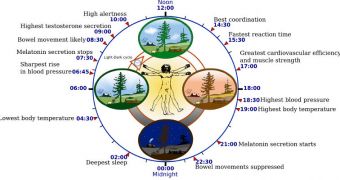Establishing the most appropriate times for starting shifts is in the best interest of both employees and employers. For the former, working in tune with their body's circadian rhythm ensures the least amount of on-the-job fatigue as possible, whereas, for the latter, it implies higher productivity. This is why regulations establishing the maximum amount of hours that can be worked by a single person during a determined time period should become the norm, scientists argue today at the 24th annual meeting of the Associated Professional Sleep Societies LLC (SLEEP 2010).
At the conference, held in San Antonio, Texas, experts present their new proposals for when shift hours should begin and end, so that employees can get the maximum amount of sleep, and also the highest productivity. “Our most interesting finding was that shifts beginning between 8 pm and midnight yielded consistently poorer predicted performance and less than adequate predicted total sleep per 24 hours,” says Washington State University Spokane (WSUS) Sleep and Performance Research Center research assistant Angela Bowen, the lead author of the new investigation.
The expert adds that the body's natural circadian rhythm should be the aspect on which all shift hours are based. For example, in the case workers that do night shifts beginning before midnight, the amount of sleep these individuals get each day is very small. They cannot sleep before work, because sleeping during the early evening conflicts with the intense activity the human body undergoes due to the circadian rhythms at the exact same time. Conversely, if the shifts start after midnight, then the workers can get enough sleep beforehand, the new study reveals.
Additional data show that employees get the maximum amount of sleep each day if their shifts start anywhere between 9 am and 2 pm. Those beginning work between 8 pm and midnight get the least sleep of all. It was also found that those who begin work at 9 am experience the least amount of on-the-job fatigue. “Shifts of equal duration differ in how fatiguing they are depending on the time of day when they are scheduled. The same limitation on the number of duty hours may be either overly restrictive if during the day or too liberal if during the night,” Bowen explains, adding that the recent investigation relied on using mathematical model to account for factors such as fatigue and total sleep times.

 14 DAY TRIAL //
14 DAY TRIAL //